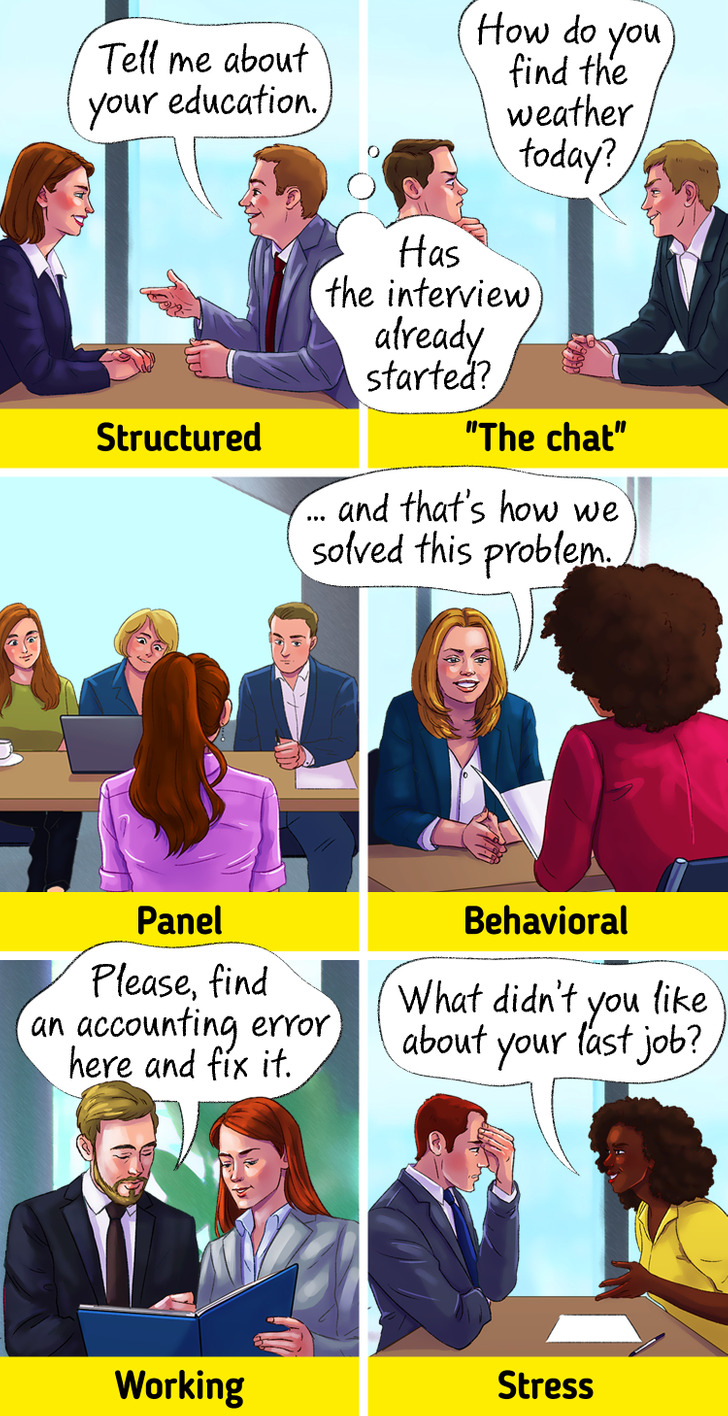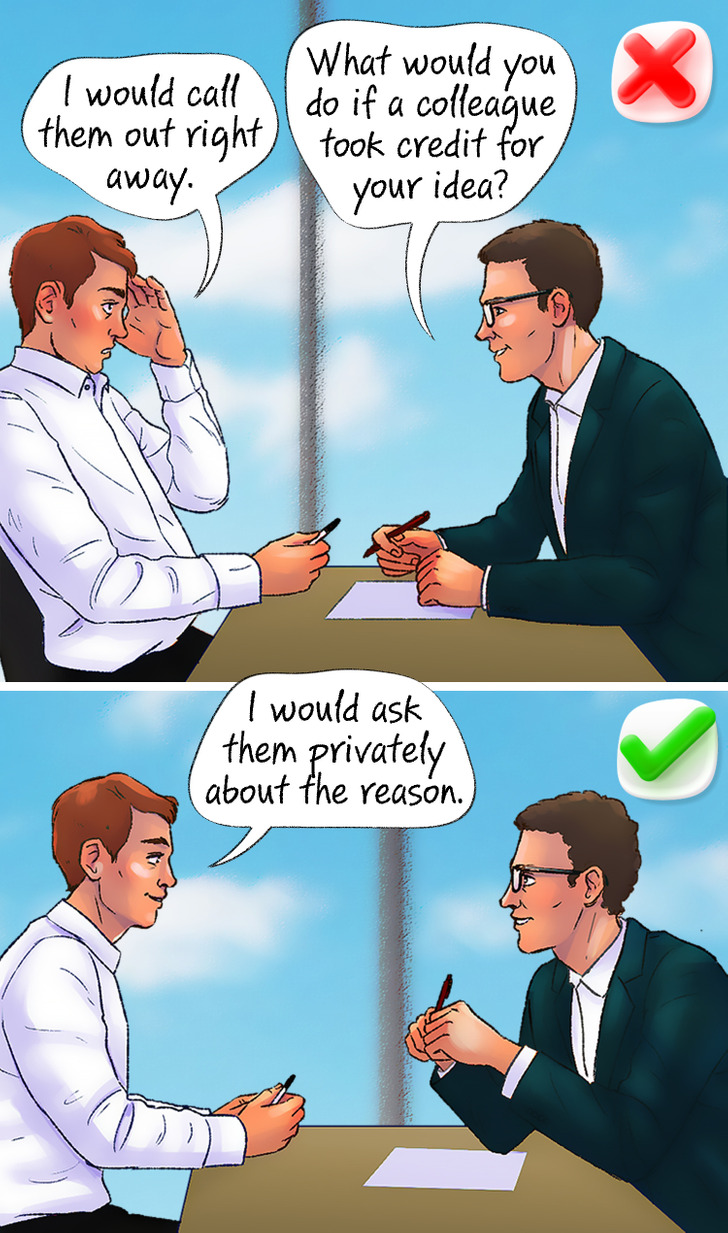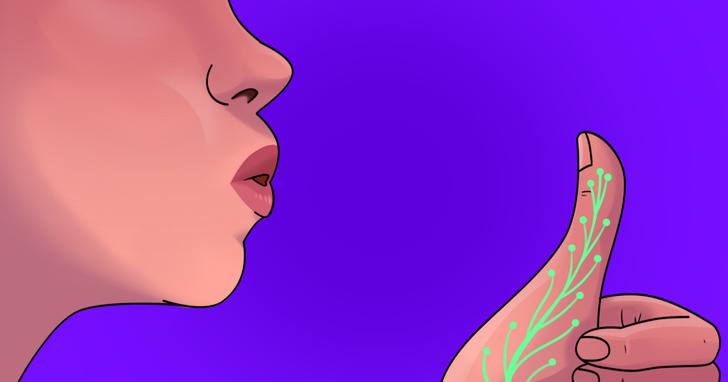What a Stress Interview Is and How to Breeze Through One
A job interview is an integral part of the professional life of any person. In the past years, human resources techniques have developed a lot, as did the hiring process accordingly. Uncomfortable situations, tricky questions, and unusual behavior — these are all techniques that companies can use during candidate examination to check your stress reaction.
So, 5-Minute Crafts has found out what a stress interview is, and we want to share tips with you on how to breeze through one.
Types of job interviews

There are different interview styles you might face when looking for a job. So, it’s better to know the common ones in order to be better prepared:
- The structured interview. You might have already had one as it’s the most popular one. You are normally asked a few simple questions to help you feel comfortable, then you discuss deeper things. You can ask your questions at the end of this type of interview. So, it’s a good decision to think about some in advance.
- “The chat” (The unstructured interview). As the name suggests, this type of interview can remind you of a chat. You are likely to feel an informal vibe. However, try to remember that the interviewer is still examining you. So be sure to show your professionalism and present your skills.
- The panel interview. 2 or more people from the company will be asking you questions. Among other things, show your attention to everyone in the room, not just one person.
- The behavioral (or competency) interview. While answering questions, you are expected to present your performance at previous jobs for the company to be able to better understand your behavioral patterns in different situations.
- The working interview. You will need to complete a task to show your skills.
- And, finally, the stress interview.
What a stress interview is

A stress interview is designed to put you under pressure, to check your ability to handle stress and respond quickly. It might include rude or random questions, inappropriate behavior, or difficult hypotheticals. Some companies use stress interviews because the position they are offering, or the industry they work in, carries serious responsibility or requires stress resistance. Industries interested in this skill can include investment banking, air travel, or front-line public sectors.
Even if you are ready for that sort of experience, remember that employers have developed good techniques to be able to bring out your true personality. They also send experienced workers to hold the interview.
Main tips for a successful stress interview

- Don’t rush with the responses. Breathe and take your time answering the questions. An interviewer might want to go at a fast pace, however, you can answer at your own pace. To have more time, you can also ask them to repeat a question.
- Don’t try to find the correct answer to a question. Choose to detail your own way of dealing with issues instead. Show your personality and skills.
- Practice. It’s a good decision to simulate a job interview beforehand. You can ask somebody to give you a hand with it. If you feel like getting professional feedback, you can hire an interview coach.
- Don’t be afraid. A stress interview has this name for a reason, however, there is no need to be fearful. Try to keep in mind that it’s still just an interview and a part of the hiring process.
- Do some research. Go check information about the company or ask your point of contact about question samples. It might help you.
Bonus: Common questions you may face in a stress interview

- As mentioned before, you might hear aggressive questions during a stress interview. For instance, “What makes you think you’re qualified for this job?”
Interviewers have already read your CV and other information about you. So, your main goal, at that point, is to show confidence in your skills and competencies. Try to provide examples of them in action.
- “You lost me halfway through. Could you start again and get to the point this time?” — is an example of a dismissive question.
Show your patience and, again, confidence here. Repeat your answer using other words and sentences. Make sure that everything is clear by asking clarifying questions.
- “What would you change about the design of a mailbox?”
You might be surprised to hear this question. That’s what they are looking for. They are not asking because they want to check your mailbox knowledge but your reaction to unexpected situations or questions. Try to react quickly and share your thoughts. Also, provide a rational answer. Your aim is to show your ability to act under pressure.
Example answer: “We’re seeing the closure of a lot of local post offices, so I’d look at bringing the mailbox into the digital age to replace some of the more basic services we’ve lost — like recorded delivery and the ability to weigh larger envelopes and purchase the appropriate postage.”
- “What would you do if a colleague took credit for your idea?”
When answering this question, try to show your teamwork skills and ability to compromise. Imagine this situation in real life. Experts recommend calming down without jumping to conclusions and making a scene. The best tactic, in this case, is to concentrate on communication with your colleague and ask them about it before addressing the manager. Sometimes, people just do things accidentally without any bad intentions.
- “How many other jobs are you applying for?”
Here, it’s better to make it clear that this company is your preference. However, you can also add that you applied to a couple of other companies.
- “What didn’t you like about your last job?”
When answering this question, be respectful of your colleagues and boss. Don’t blame them for your decision. You can point out, for example, that your and the company’s goals didn’t match up.
- “Are you willing to work overtime?”
Your answer should depend on your current situation. The point is to show that you are ready to work hard for the company, however, don’t sacrifice your personal life. If you can work extra hours, tell them. You can also ask about the company’s compensation policy. If you are not available to stay after work, underline that you will make sure to perform efficiently during your working time to complete tasks instead.
Bonus: Blowing on your thumb can reduce stress

If you need a stress reducer, just put your thumb in front of your closed mouth and blow without letting any air out.
It turns out that this way, you make your vagus nerve act as your heart’s natural pacemaker, slowing down its electrical impulses. As a result, this activity will decrease your heart rate, making you feel more relaxed.
❗Don’t try these without talking to your healthcare provider first.
Have you ever experienced strange behavior or questions during a job interview? How did you respond? Please share your stories in the comments!